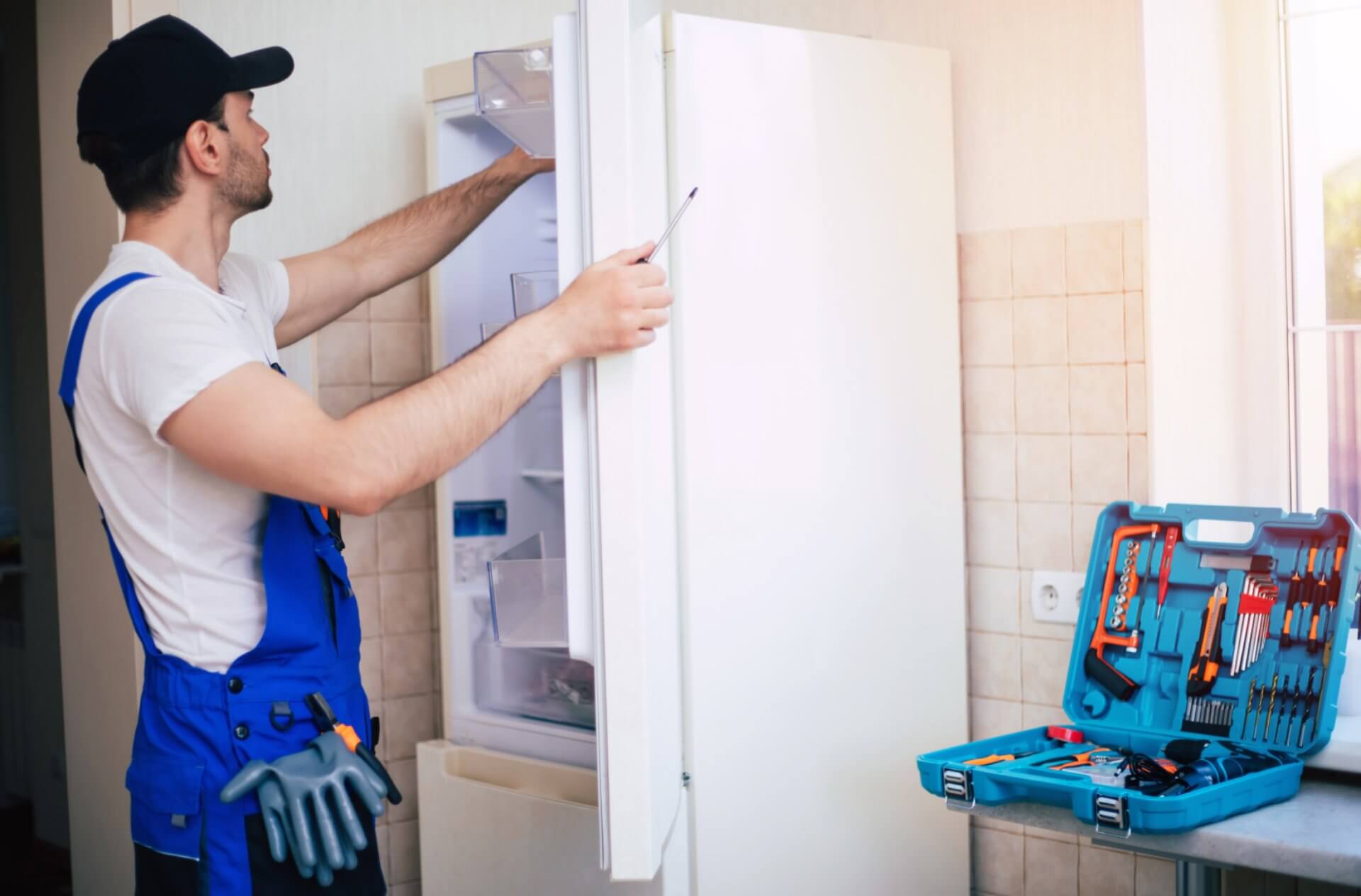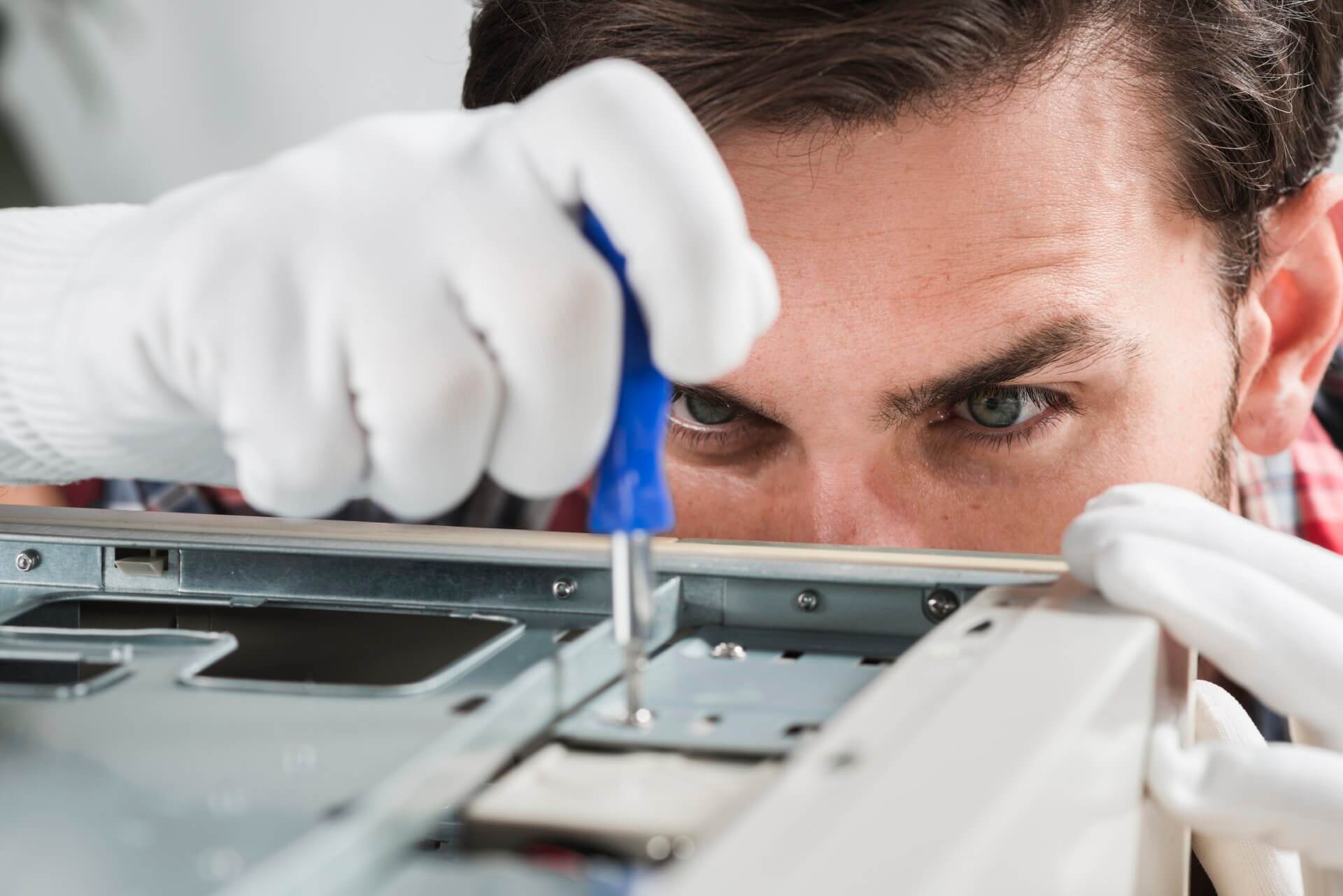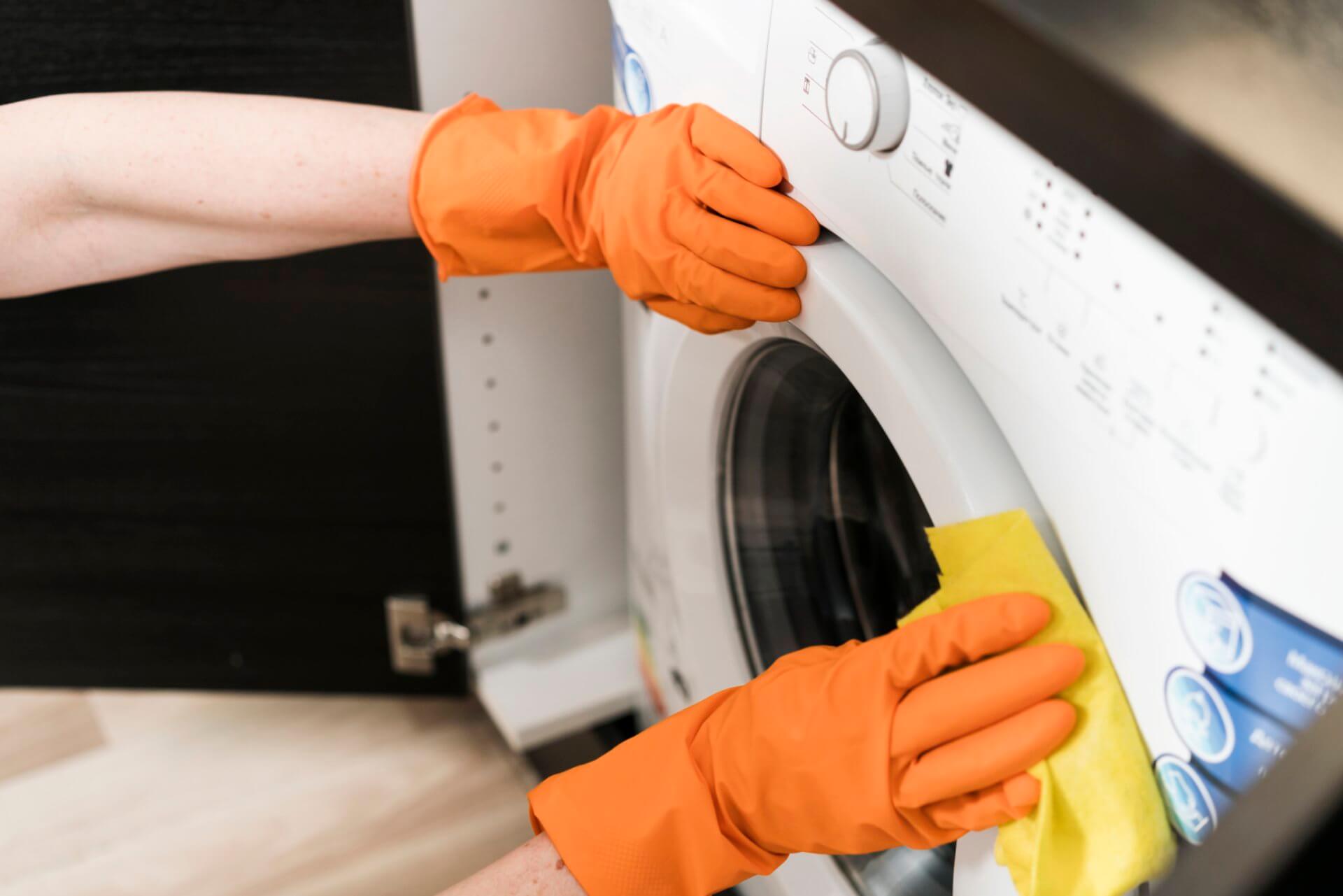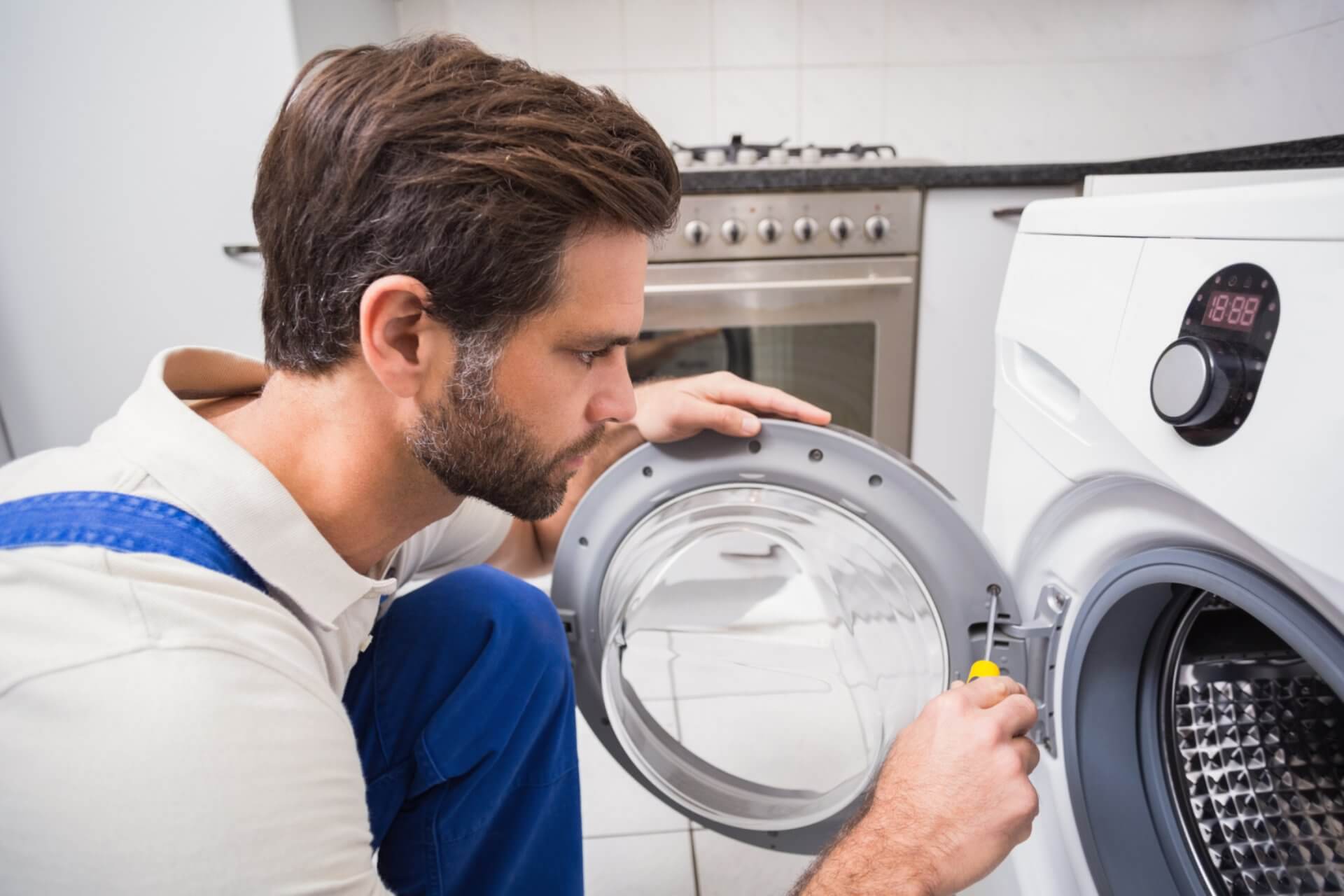Seasonal Appliance Maintenance Checklist 2025: Complete Guide for Australian Homes
Let's face it – we only seem to think about appliance maintenance when something breaks down. That inconvenient moment when the fridge stops cooling during a heatwave or the washing machine floods the laundry on the morning of an important meeting. But what if I told you that just 30 minutes of preventative maintenance each season could prevent 80% of these emergencies?
After 15 years helping Australian homeowners maintain their appliances, I've developed this comprehensive seasonal maintenance checklist specifically for our climate. From Perth's hot summers to Melbourne's cold winters, this guide keeps your appliances running efficiently all year round. Not only will these simple tasks extend the life of your appliances by 3-5 years, but they'll also reduce your energy bills and help you avoid those expensive emergency repair calls.

Why Seasonal Maintenance Matters
Before diving into the specific checklists, let's understand why a seasonal approach works best:
- Different weather conditions affect appliances differently (summer heat stresses refrigeration systems, winter cold affects water pipes)
- Usage patterns change with the seasons (air conditioners work harder in summer, heating systems in winter)
- Breaking maintenance into seasonal chunks makes it more manageable
- Regular check-ups catch problems early before they become expensive repairs
- Efficiency drops gradually, often unnoticed until seasonal maintenance reveals issues
According to the Australian Energy Regulator, properly maintained appliances use up to 25% less energy than neglected ones. With Australia's average electricity prices at 33c/kWh in 2025, that could mean savings of $300-500 annually for the average household!
Seasonal Appliance Maintenance Calendar
Summer Maintenance Checklist (December-February)
Summer puts extra strain on cooling appliances while creating perfect conditions for mould growth in wet areas. Focus on:
Refrigerator & Freezer (Summer Priority)
- Clean condenser coils — Summer's #1 most important task that prevents 70% of cooling failures
- Check door seals with the "dollar bill test"
- Verify temperatures (refrigerator: 3-4°C, freezer: -18°C)
- Clean ice maker components and water lines
- Vacuum dust from the compressor area
Air Conditioner
- Replace or clean filters — Dirty filters reduce efficiency by up to 15%
- Clear debris from outdoor condenser unit
- Check condensate drain line for blockages
- Test all modes and settings before the hottest days arrive
- Clean supply and return vents throughout the home
Washing Machine
- Check hoses for bulges, cracks, or leaks
- Clean door gasket with vinegar solution to prevent summer mould
- Run an empty hot cycle with 2 cups of vinegar
- Ensure proper ventilation in the laundry room
- Level the machine if it's shifted during operation
Summer Safety Tip: According to Fire and Rescue NSW, appliance fires increase by 20% during summer months. Checking electrical connections and cleaning dust from motors and vents significantly reduces this risk.

Autumn Maintenance Checklist (March-May)
Autumn is perfect for transitional maintenance as you prepare for cooler weather while addressing summer wear and tear.
Clothes Dryer (Autumn Priority)
- Clean the entire vent system from dryer to outside — This prevents 85% of dryer fires (see our complete dryer vent cleaning guide)
- Remove and deep clean the lint filter with soap and water
- Check the vent flap for proper operation
- Vacuum inside the dryer cabinet and around the drum
- Inspect the belt for wear and proper tension
Dishwasher
- Clean the filter and spray arms
- Run an empty cycle with a dishwasher cleaner
- Check door seals for leaks or mould
- Clear the drain area of debris
- Inspect water connections for leaks
Heating Systems
- Replace filters in ducted systems
- Clean vents and registers
- Schedule professional service before winter arrives
- Test system operation on a mild day
- Check carbon monoxide detectors if using gas heating
Autumn Efficiency Tip: Taking time to clean dryer vents can reduce drying time by up to 25% and cut energy usage significantly, making it one of the most cost-effective maintenance tasks you can perform.

Winter Maintenance Checklist (June-August)
Winter's cold temperatures affect water-using appliances most, while heating systems work their hardest.
Hot Water System (Winter Priority)
- Test pressure relief valve — Prevents dangerous pressure buildup
- Check for leaks around connections
- Drain 1-2 litres from tank to remove sediment (for storage systems)
- Insulate exposed pipes if in cold areas
- Verify temperature setting (should be 60°C according to AS/NZS 3500)
Oven & Stovetop
- Deep clean oven interior and racks
- Check door seals for damage
- Test all burners and elements for even heating
- Clean range hood filters
- Verify oven temperature with an oven thermometer
Refrigerator
- Check door alignment
- Clean interior with baking soda solution
- Defrost freezer if ice exceeds 5mm thickness
- Test interior light and door alarm if equipped
- Clean water dispenser nozzle if applicable
Winter Safety Note: According to Energy Safe Victoria, winter sees a 30% increase in electrical faults due to heavier appliance use. Check all power cords for damage and avoid overloading circuits with multiple heating appliances.

Spring Maintenance Checklist (September-November)
Spring is ideal for deep cleaning and preparing cooling systems for the coming heat.
Air Conditioner (Spring Priority)
- Professional service recommended — 84% of cooling issues can be prevented with pre-season maintenance
- Replace filters
- Clean condenser and evaporator coils
- Check refrigerant levels (professional task)
- Clear condensate drain lines
- Test system operation
Washing Machine
- Clean drain pump filter — Prevents 65% of drainage issues
- Check hoses for winter damage or cracks
- Clean detergent drawer thoroughly (see our complete washing machine cleaning guide)
- Run cleaning cycle with machine cleaner
- Check cold water inlet filter for sediment
Vacuum Cleaner
- Replace bag or empty canister
- Clean or replace filters
- Check brushes for wear or entangled debris
- Inspect hoses for blockages
- Clean dust from motor vents
Spring Water Tip: After winter, check all water-using appliances carefully. According to Sydney Water, household leaks waste an average of 10,000 litres of water annually, with washing machines and dishwashers being common culprits.
.jpg)
Year-Round Maintenance Tips
While seasonal maintenance targets specific needs, these monthly habits keep all appliances running smoothly:
- Monitor unusual sounds or smells — Early warning signs that can prevent major failures
- Check and clean filters regularly — Applies to dishwashers, vacuum cleaners, range hoods, etc.
- Inspect water connections monthly — A 1-minute check that prevents flooding
- Keep appliances clean inside and out — Prevents 70% of premature failures
- Address small problems promptly — A $30 replacement part often prevents a $300 repair bill
Creating Your Custom Maintenance Schedule
To make this maintenance plan work for your home:
- Create a digital or printed calendar with seasonal tasks
- Set reminders on your phone for critical maintenance items
- Keep a maintenance log for each major appliance
- Store user manuals together in a dedicated folder
- Build a basic toolkit for appliance maintenance:
- Screwdriver set
- Multimeter
- Vacuum with attachments
- Cleaning brushes
- Manufacturer-recommended cleaners
Understanding When to DIY vs. Call a Professional
While most maintenance tasks are DIY-friendly, some require professional expertise:
Safe for DIY:
- Cleaning accessible parts
- Replacing filters
- Testing and monitoring performance
- Basic inspections
- Simple part replacements (water filters, etc.)
Call a Professional When:
- Dealing with sealed refrigeration systems
- Addressing electrical components (according to AS/NZS 3000 standards)
- Gas appliance internal repairs (according to AS/NZS 5601)
- When special tools or gauges are required
- If appliance is under warranty (DIY may void coverage)
The Financial Benefits of Seasonal Maintenance
Let's talk numbers – regular maintenance isn't just about avoiding headaches, it makes financial sense:
- Extended appliance lifespan — Properly maintained appliances last 3-5 years longer
- Reduced energy costs — Clean, efficient appliances use 10-25% less energy
- Lower water bills — Properly maintained water appliances prevent wasteful leaks
- Fewer emergency repairs — Scheduled maintenance costs 50-80% less than emergency service calls
- Higher resale value — Well-maintained appliances can increase home value
For example, investing 30 minutes to clean refrigerator coils twice yearly saves approximately $50 in annual energy costs and $500-1,000 by extending the refrigerator's life by 3+ years!
Conclusion: Your Next Steps
A stitch in time saves nine, and nowhere is this truer than with appliance maintenance. By following this seasonal checklist, you're not just preventing breakdowns – you're protecting your investment, reducing your environmental footprint, and saving money.
I've seen firsthand how Australian homes that follow a seasonal maintenance schedule have 70% fewer emergency appliance repairs and significantly lower utility bills. The small time investment each season pays enormous dividends in reliability, efficiency, and peace of mind.
Remember: manufacturers design most major appliances to last 10-15 years, but proper maintenance can extend this to 15-20 years. That's potentially thousands of dollars saved simply by spending a few hours each season on preventative care!
Take Action Today:
- Download or bookmark this checklist for easy reference
- Set seasonal reminders in your phone (first week of December, March, June, and September)
- Start with one appliance – don't try to do everything at once
- Keep a maintenance log to track what you've done
For more detailed guides on specific appliances, check out our articles on extending refrigerator life, cleaning your washing machine, and preventing dryer fires.
Frequently Asked Questions (FAQs)
How much time should I budget for seasonal appliance maintenance? Plan for about 2-3 hours per season, focusing on the priority appliances for that time of year. Breaking tasks into 30-minute sessions makes maintenance more manageable.
Which appliance maintenance task provides the biggest return on investment? Cleaning refrigerator condenser coils delivers the highest ROI, reducing energy usage by up to 30% and preventing the most common cause of refrigerator failures.
Can regular maintenance really extend appliance life? Absolutely. Data from service providers shows properly maintained appliances last 30-50% longer than neglected ones. A refrigerator's average lifespan jumps from 10 years to 15+ years with regular maintenance.
Do newer appliances need less maintenance? Surprisingly, no. While newer models are more efficient, their sophisticated electronics and sensors often require more regular maintenance to function optimally.
What's the most commonly neglected maintenance task? Dryer vent cleaning is the most ignored task, yet one of the most critical. According to Fire and Rescue NSW, blocked dryer vents are a leading cause of house fires, with lint buildup responsible for hundreds of preventable fires annually.
Is professional maintenance worth the cost for any appliances? Yes, for air conditioning systems and gas appliances, professional service every 2-3 years is worth the investment. The technical expertise and specialised tools help identify issues beyond the scope of DIY maintenance.

About Julian
Home appliance enthusiast and DIY repair specialist with a passion for helping others save money on appliance maintenance.
Related Articles

How to Extend the Life of Your Refrigerator: 7 Maintenance Tips

How to Clean Your Washing Machine: A Step-by-Step Guide

